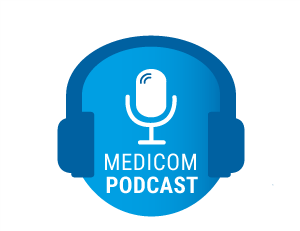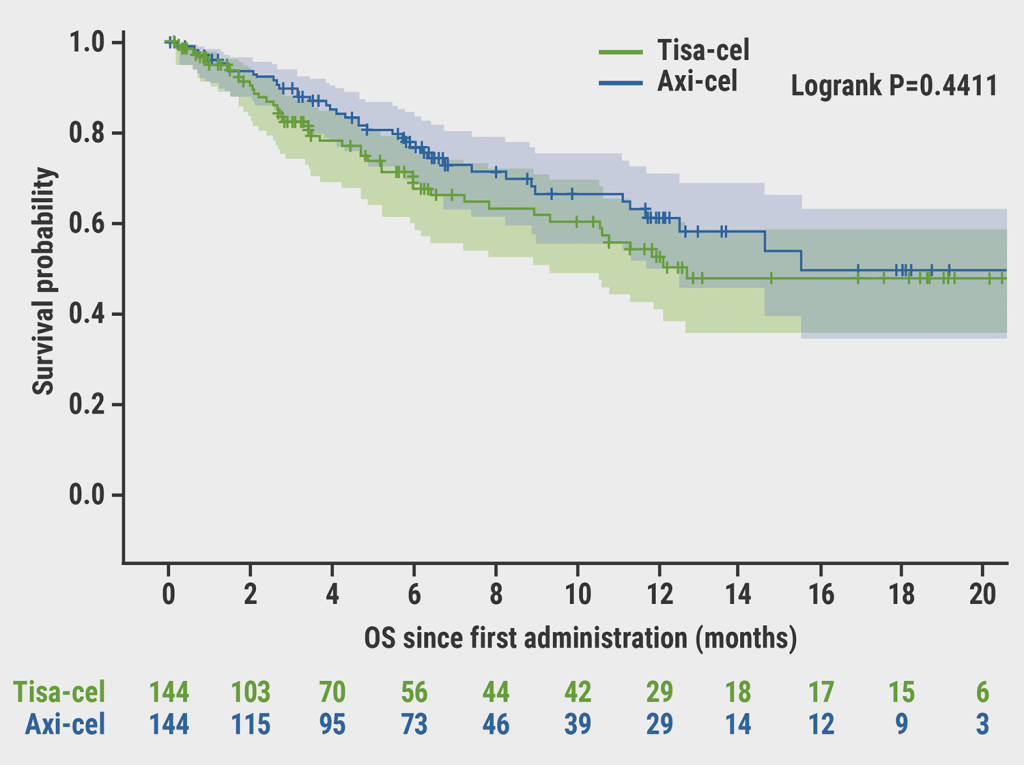https://doi.org/10.55788/78cfa302
“CAR T-cell therapies have resulted in a paradigm shift in our thinking of cancer treatment,” said Rezvani. “However, the currently available CAR T-cell therapies are all autologous and are therefore time-consuming and costly to produce.” Another issue with these therapies, according to Dr Rezvani, is limited access. To improve this situation, Dr Rezvani and co-investigators looked at the possibility of using a healthy allogeneic donor to manufacture CAR therapies and freeze doses of these cells so they can be available as an off-the-shelf product. “This would increase access and speed, and reduce costs,” added Dr Rezvani.
The general challenges to the use of allogeneic donors for CAR therapy are the risk for graft-versus-host disease, limited persistence, the choice of cell type, and the choice of donors. The research group of Dr Rezvani chose to study NK cells for this purpose. “The main advantages of NK cells over T cells in the context of allogeneic CAR therapy is that NK cells do not cause GvHD, and that NK cells attack cancer cells by means of the introduced CAR and by innate receptors, whereas T cells may cause GvHD and only have the CAR-mediated mechanism of killing cancer cells,” explained Dr Rezvani. Also, NK cells are not associated with cytokine release syndrome (CRS) or immune effector cell-associated neurotoxicity syndrome (ICANS). “Various allogeneic NK cell sources are being evaluated at the moment, including peripheral blood, cord blood, NK cell line, and induced pluripotent stem cells,” continued Dr Rezvani.
Dr Rezvani ‘s research focussed on cord blood. A phase 1 study that was published in 2020 demonstrated a complete response in 7 out of 11 patients with CD19-positive lymphoid tumours who were treated with CAR-transduced NK cells, without the arise of CRS, neurotoxicity, or GvHD [2]. Furthermore, CAR NK cells were detectable at 12 months post-infusion, even though the CAR NK cells were HLA-mismatched with the recipients.
Dr Rezvani’s research group is interested in the mechanisms of resistance that are associated with CAR-NK therapy. An in vivo study by Li et al. showed that CAR-NK cell trogocytosis drives relapse by downregulating target antigen on tumour cells, resulting in NK exhaustion and fratricide [3]. However, the investigators were able to demonstrate that an inhibitory CAR against an NK-specific antigen prevented fratricide and exhaustion mediated by the on-target off-tumour effect of the activating CAR.
Can CAR NK cells be applied beyond CD19-positive tumours?
Dr Rezvani then explained that the research group aimed to target non-CD19-positive tumours. “We hypothesised that pre-complexing NK cells with bispecific antibodies or FC-enhanced antibodies prior to infusion facilitates CAR-like responses by NK cells,” she said. “Pre-activation of NK cells with cytokines could potentially enhance persistence by inducing a memory phenotype,” she added. An ex-vivo study by Kerbauy et al. displayed that IL-12/15/18 pre-activated NK cells prior to expansion are associated with upregulation of genes related to the JAK-STAT pathway and interferon-γ response [4]. If these pre-activated NK cells were then loaded with a bispecific antibody, they were able to target CD16 and CD30 on cancer cells.
This concept was tested in a clinical trial (NCT04074746) in a heavily pre-treated population of 41 patients with Hodgkin lymphoma who failed on brentuximab. The 28-day response rate was 92.5%, with a 65% complete response rate. Among patients who were treated with the highest dose level of these pre-complexed NK cells, the response rate was even higher. Furthermore, no cases of CRS, ICANS, or GvHD were reported [5]. “However, the responses were transient,” added Dr Rezvani. “The results that were presented at ASH 2022 were based on a 2-cycle regimen. We need to await the follow-up responses of the 4-cycle regimen to see whether this prolonged therapy can increase the duration of responses.” She clarified that it is not surprising that the persistence of these NK cells was limited, given the short lifespan of NK cells.
Furthermore, Dr Rezvani and colleagues tested 34 different CD70 targeting CAR-NK constructs, using the extracellular domain of CD27, since CD70 is a natural ligand for CD27. The most promising CD70 CAR-NK cells displayed excellent antitumour activity and safety in mice with Burkitt lymphoma or acute myeloid leukaemia (AML). Importantly, the research group found a cryopreservation method that led to similar results for frozen CD70 CAR-NK cells as for fresh cells. Currently, 2 clinical trials are running to test IL-12/15/18 pre-activated CAR-NK cells in human populations (i.e. NCT05703854; NCT05092451).
“We need to develop CARs that target more than 1 antigen, combine CAR engineering with bispecific antibody loading, use the knowledge of cytokine engineering and CRISPR gene editing, and combine novel CAR therapies with checkpoint inhibitors, immunomodulatory drugs, and radiotherapy to begin to address the unmet need in hard-to-treat cancers such as AML and solid tumours,” Dr Rezvani concluded her presentation.
- Rezvani K. CAR NK cells: next-generation cell therapies for cancer. P03-01, European Society for Blood and Marrow Transplantation (EBMT) 49th Annual Meeting, 23–26 April 2023, Paris, France.
- Liu E, et al. N Engl J Med 2020;382:545–553.
- Li Y, et al. Nature Medicine. 2022;28:2133–2144.
- Kerbauy LN, et al. Clin Cancer Res. 2021;27(13):3744–3756.
- Nieto Y, et al. Abstract 168, ASH 64th Annual Meeting, 10–13 December 2022, New Orleans, LA, USA.
Copyright ©2023 Medicom Medical Publishers
Posted on
Previous Article
« Novel drugs and strategies around ASCT for Hodgkin lymphoma Next Article
Can molecular data improve prognostication in MDS patients undergoing HSCT? »
« Novel drugs and strategies around ASCT for Hodgkin lymphoma Next Article
Can molecular data improve prognostication in MDS patients undergoing HSCT? »
Table of Contents: EBMT 2023
Featured articles
CAR T cells rise to the front in multiple myeloma
Acute Leukaemia
Quizartinib plus chemotherapy improves OS in patients with AML undergoing ASCT
Blinatumomab may improve outcomes in patients with B-cell ALL undergoing ASCT
Is ASCT a reasonable option in patients with invasive aspergillosis?
Tacrolimus versus cyclosporine A in AML
Promising novel target identified for AML
Multiple Myeloma
Ide-cel superior to standard therapies in triple-class exposed RRMM
ASCT or CAR T cell as first-line therapy for MM?
DETERMINATION: Does one size fit all in multiple myeloma?
Graft-Versus-Host Disease
New options to treat steroid-refractory chronic GvHD
New developments in steroid-refractory acute GvHD
Miscellaneous Topics
Long-term success for CD19 CAR T-cell therapy in CLL
Can molecular data improve prognostication in MDS patients undergoing HSCT?
Next-generation cell therapies for cancer: CAR-NK cells
Novel drugs and strategies around ASCT for Hodgkin lymphoma
Thalassaemia: Advances in conventional transplantation and gene therapy
Related Articles

June 28, 2023
EHA 2023 Highlights Podcast

February 4, 2022
Axi-cel more effective but tisa-cel less toxic in DLBCL
© 2024 Medicom Medical Publishers. All rights reserved. Terms and Conditions | Privacy Policy

